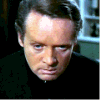Barring especially extreme weather, I walk to and from BU every day. Although the small amount of exercise is important, I do this mostly because it gives me a whole hour each day to listen to music without much distraction. For the last few months, I've been listening to Brahms each morning.
Only a couple years ago, my knowledge of classical music began and ended with Beethoven. I once had the ridiculous idea to listen to every Beethoven opus in order. Brahms more than any other composer could be considered the heir to Beethoven, and for that reason I avoided his music for a while. Why listen to a imitation instead of the real thing? Well, I was being stupid. Brahms has an extremely wide range, and though there are plenty of clever allusions to Beethoven in his music, it's very easy to enjoy on its own sake. The key thing to remember is that Beethoven was working actively to thwart the classical conventions of his time. Brahms, over fifty years later, was seen as a conservative, using the older (but heavily altered) musical forms while contemporaries like Lizst and Wagner had abandoned them for something more programmatic. While their music can be hard to follow along with (without form, it's hard to keep your attention focused), Brahms' is not, but at the same time his music can be much more melodic than Beethoven's, in my opinion, and doesn't have as many "gotcha" moments, where Beethoven messes with your expectations.
Anyways, since I only listened to most of this music once, I'm not really qualified to go into any depth about any of it. Instead, I'll take the easy road and rank what I heard into groups. Let me first say that there wasn't anything on this list that I actively disliked. Brahms' music is very approachable. I would heartily recommend him to classical noobs. Since he burned almost all of his early work in a fit of self-revisionism, what's been passed down to us is especially good and not overwhelming (four symphonies as opposed to Beethoven's nine, three string quartets as opposed to sixteen, etc).
Top Tier:
Piano Quartets 1-3: To me, these quartets sound like piano concertos with a heavily reduced accompaniment. Which is to say that the piano dominates these. But the strings do their darnedest to keep up. Most people would probably recognize the fourth movement of the first quartet if they heard it (the "Rondo alla Zingarese"), but I'm stunned every time I hear it. Finally, I'm a chamber music convert.
A German Requiem: I'm also a choral music convert after this one. Brahms didn't use any existing mass for this one, but created something extremely personal and moving to commemorate his mother's death. The melodies on this one are amazing.
Clarinet Quintet: When you think clarinet and strings, you think of Mozart's incredibly relaxing opus. This one is expectedly weightier. Surprisingly, it works!
Still Great:
Piano Trio No. 1
Violin Concerto
Violin Sonatas
Four Serious Songs
Symphony No. 2
Piano Concerto No. 1: The reputation for this one is not good - the bad reaction to this piece apparently put Brahms off orchestral music until he was middle-aged. But I quite liked it! Sure, it's somewhat heady, but there's a great momentum to it. I even like the much maligned third movement!
Good, but kinda disappointing:
Symphony No. 1:
This one is popularly known as Beethoven's Tenth, and it's fans say it holds up well against the ninth, which it unsubtly alludes to with a very "Ode to Joy" like theme at the end. But I didn't find it nearly as epic and moving - in particular, the fourth movement seemed to be kind of a mess. Overall, I would say that Brahms' symphonies just don't compare to Beethoven's. I did like the second one better (see above).
String Sextets:
Some people wonder why the sextet was not a more popular form. I am still not one of those people.
Wednesday, July 2, 2014
Subscribe to:
Post Comments (Atom)

No comments:
Post a Comment